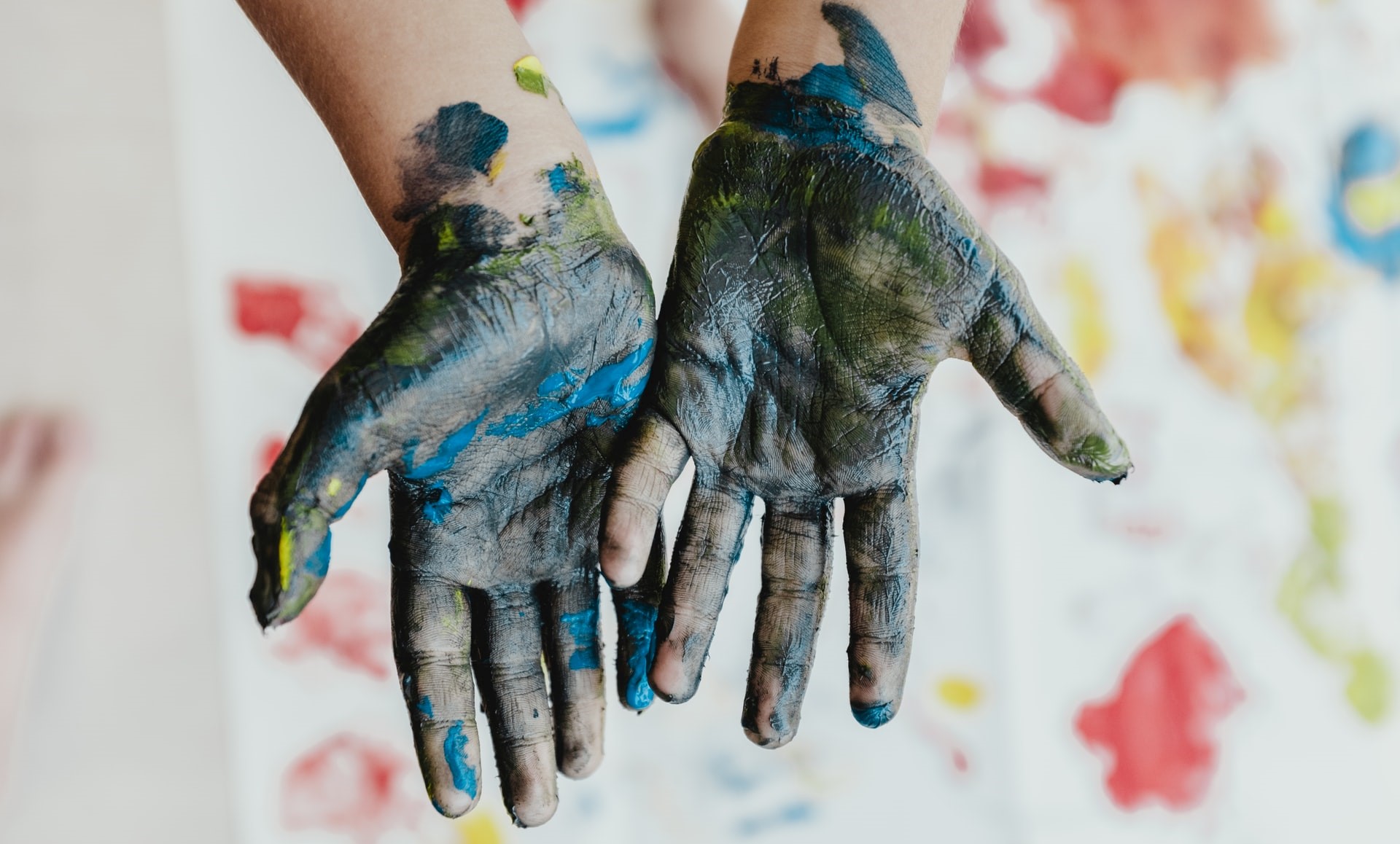When we talk about art or any activity related to creativity, it is common to think about inspiration, magical powers or similar matters. That superhuman touch that has long been associated with human ideas and inventions has led many people to have a distorted image of artistic work and creation itself.
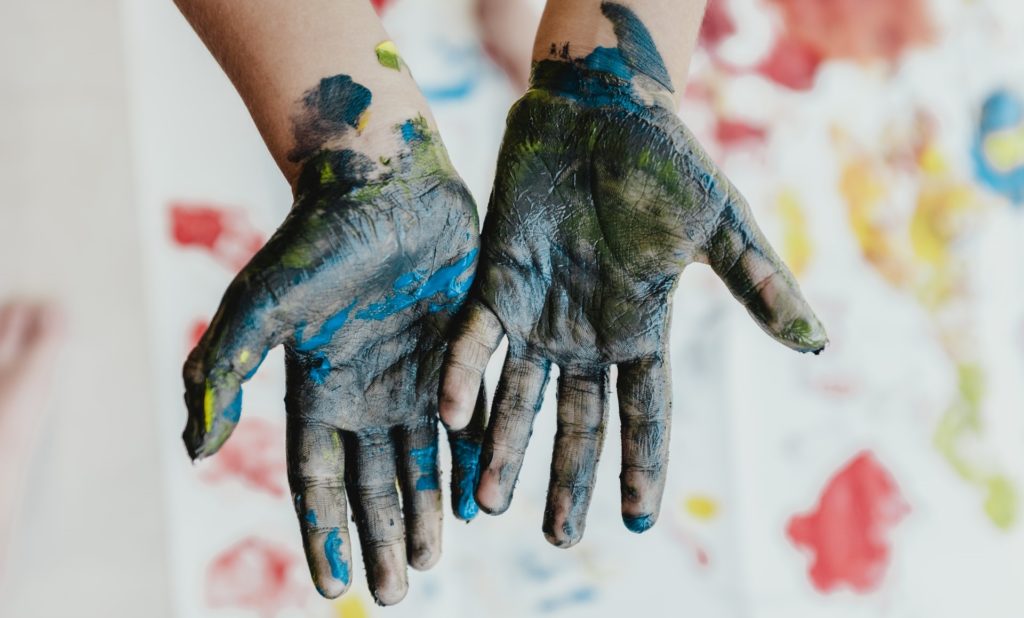 Creativity, routines, habits Let's see to what extent all this is true and if we can be creative without the help of magic and muses.
Creativity, routines, habits Let's see to what extent all this is true and if we can be creative without the help of magic and muses.
What do we understand by creativity?
First we are going to focus on the word creativity and the very concept of creating. Typically, the invention or creation of something is linked to how novel it is or, at least, what it appears to be. If we perceive a work as something already known, as a repetition to some extent, we are hardly going to attribute a large dose of creativity to it. If we perceive the opposite, even if we do not know that it is a copy of something already made, it is very possible that we will think about the wonderful and special inspiration that has made it possible. Therefore, the subjectivity of our perception and, especially, the background or knowledge we have of the music or art in question will decisively influence our judgment about whether something is very or very little creative. Podcast episode dedicated to creativity and music
Creativity in songs and music
If we go to what interests us most here, composing music and songs, we find the same tendency to associate the talent, good ideas or genius of authors with innate, mysterious and, in any case, dark and almost impossible matters. to dominate. How many times have we heard that inspiration and routine do not get along, that great ideas appear in special, unexpected moments, when they want them and not when we need them or want to invoke them? And, if we dedicate ourselves to this type of matter, if we want to create new songs, for example, what can we do?
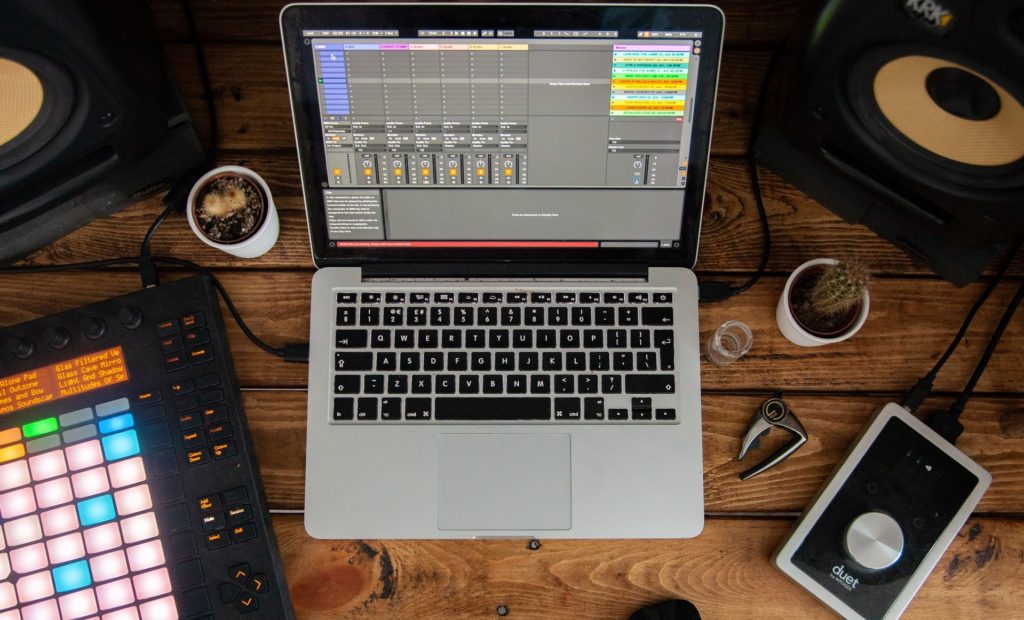 Creation space
Creation space
Creative routines are reality
To reveal what we are talking about, we must say very loudly what is attributed to Picasso: «Inspiration always finds me working«. This is the truth and the authentic reality of thousands of musicians and song writers. Dedication, study, trial, success and error, all those daily situations of people who spend their time in creative tasks are the authentic food of good ideas, artistic sense, meaningful craftsmanship, value. itself of the works, in short. You don't have to be Picasso or Mozart or Dylan. Any of us, if we want to produce, improve and fill with meaning both our compositions and the work of creating itself, we must commit to it, get down to work, start and finish works, be oriented and dedicated to this very special activity without excuses. Without a doubt, as far as we are able to go. Inspiration does not live in a vacuum, nor in infinite leisure, nor will it wake us up in the middle of the night if we have not called it before.
Elements of a good routine
The reality is that creative activities require more or less the same as other jobs without that glamour. Insistence and attention, also known as habits or routines. To get to the point, we must identify a few important things when creating a habit that leads us to create more and better works: goalshe time and the space.
1. Objectives
To clearly determine our actions, what we are going to do effectively on any given day with our lives, it is very useful to establish concrete objectives within our short-term possibilities.
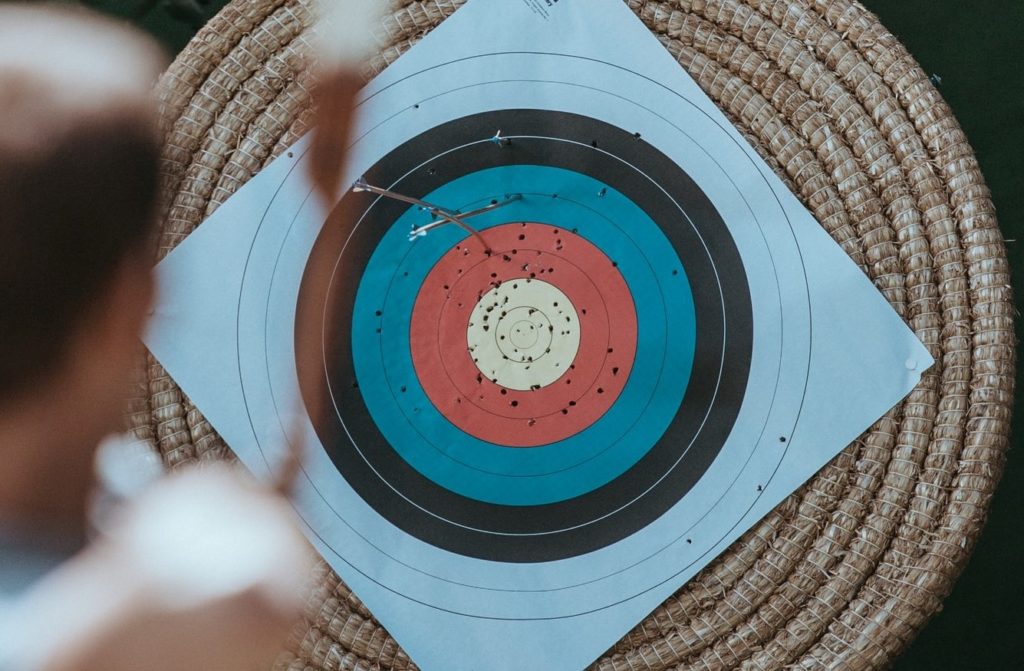 Objective If we do not know where we are and where we are going or want to go, we are simply going to go around and around until we are exhausted. Establishing a direction, a small, achievable project and focusing on achieving it is an effective strategy that will also motivate us to continue forward with new goals. I am not referring, in principle, to great objectives. We can have a medium-term vision such as composing songs to complete an album, for example, but what we have to focus on is writing the first song.
Objective If we do not know where we are and where we are going or want to go, we are simply going to go around and around until we are exhausted. Establishing a direction, a small, achievable project and focusing on achieving it is an effective strategy that will also motivate us to continue forward with new goals. I am not referring, in principle, to great objectives. We can have a medium-term vision such as composing songs to complete an album, for example, but what we have to focus on is writing the first song.
2. Time
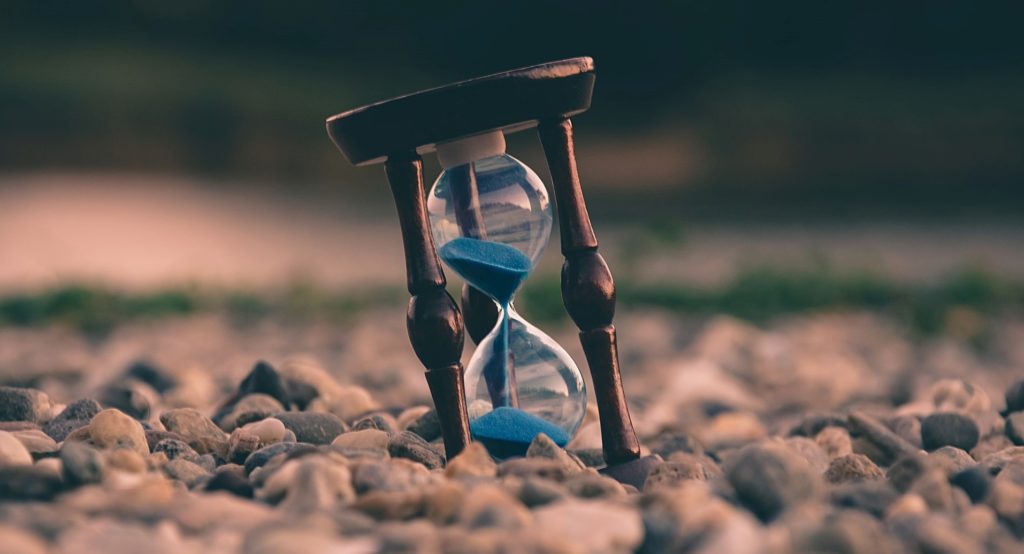 Time to create In order for these objectives to be met, we must reserve a time, a schedule, certain moments in which we are going to go directly to accomplish the stage or goal at hand and not other matters. Gather as much time as you can and divide it into specific plots. If your objective includes several directly related issues, the most important will go first and we will also dedicate more time to them than to the others. If the main goal is to compose, compose first and then, for example, practice your instrument or study music or related artists. In addition, you have to set a limit for each task. Committing to having a complete song in three days, or five, or a week at most, will put us in an unbeatable state to take advantage of time, be efficient, and learn to make decisions without thinking about every detail first. Before you start, determine that limit, during the process, remember it and, of course, stick to it.
Time to create In order for these objectives to be met, we must reserve a time, a schedule, certain moments in which we are going to go directly to accomplish the stage or goal at hand and not other matters. Gather as much time as you can and divide it into specific plots. If your objective includes several directly related issues, the most important will go first and we will also dedicate more time to them than to the others. If the main goal is to compose, compose first and then, for example, practice your instrument or study music or related artists. In addition, you have to set a limit for each task. Committing to having a complete song in three days, or five, or a week at most, will put us in an unbeatable state to take advantage of time, be efficient, and learn to make decisions without thinking about every detail first. Before you start, determine that limit, during the process, remember it and, of course, stick to it.
3. Space
Another important issue is the workspace. Where are you going to be when you write those songs or practice a repertoire or is it a goal that you have committed to? You need a space prepared to work before hand. We cannot waste time setting up and disassembling our workspace, the material has to be ready and accessible. We will also need a place without distractions, quiet, if possible, and also free of interruptions of any kind. Do what you have to do to achieve that space.
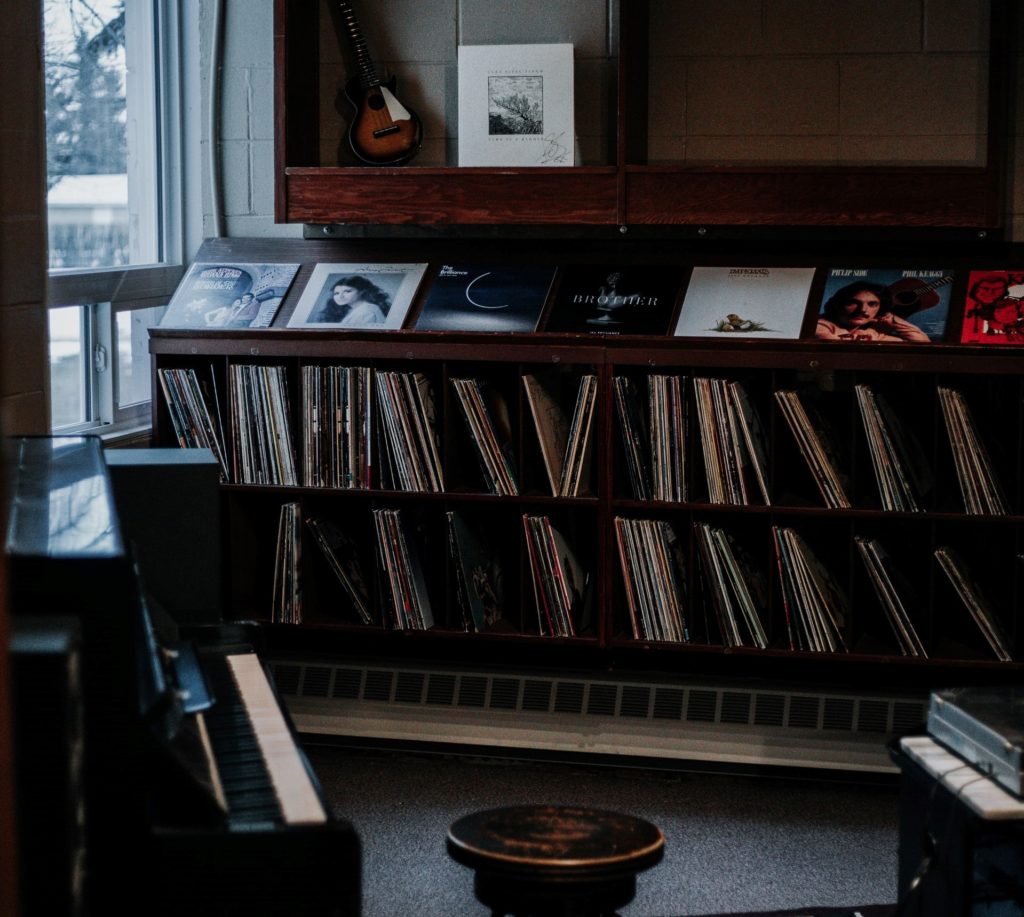 Space to create
Space to create
Conclusions
Once again, if we really want to do this, we want to improve, we want to produce works of art, although it may sound a bit pretentious, if we have that illusion or purpose, we must provide the means. Because if not, there is no need to worry about this matter. You will dedicate moments, moments when you can or when you want and it will be what we call a hobby, pure entertainment. Which is also good, mind you. Myths about creativity and art are so old. It is true that it is a special activity, it is not something absolutely mechanical, or it should not be, although it does have its mechanisms, its common places, its repetitions,… it is a human activity, in short, and we humans love customs, it seems that to a certain extent, we need them. Therefore, we are going to take them into account and put them to work for us, we are going to drive ourselves in the direction we want and not in detours or in any direction. And don't forget the most important thing. Don't wait any longer. Focus, organize and do it. #mailpoet_form_3 .mailpoet_form { } #mailpoet_form_3 .mailpoet_column_with_background { padding: 10px; } #mailpoet_form_3 .mailpoet_form_column:not(:first-child) { margin-left: 20px; } #mailpoet_form_3 .mailpoet_paragraph { line-height: 20px; margin-bottom: 20px; } #mailpoet_form_3 .mailpoet_segment_label, #mailpoet_form_3 .mailpoet_text_label, #mailpoet_form_3 .mailpoet_textarea_label, #mailpoet_form_3 .mailpoet_select_label, #mailpoet_form_3 .mailpoet_radio_label, #mailpoet_form_3 .mailpoet_checkbox_label, #mailpoet_form_3 .mailpoet_list_label, #mailpoet_form_3 .mailpoet_date_label { display: block; font-weight: normal; } #mailpoet_form_3 .mailpoet_text, #mailpoet_form_3 .mailpoet_textarea, #mailpoet_form_3 .mailpoet_select, #mailpoet_form_3 .mailpoet_date_month, #mailpoet_form_3 .mailpoet_date_day, #mailpoet_form_3 .mailpoet_date_year, #mailpoet_form_3 .mailpoet_date { display: block; } #mailpoet_form_3 .mailpoet_text, #mailpoet_form_3 .mailpoet_textarea { width: 200px; } #mailpoet_form_3 .mailpoet_checkbox { } #mailpoet_form_3 .mailpoet_submit { } #mailpoet_form_3 .mailpoet_divider { } #mailpoet_form_3 .mailpoet_message { } #mailpoet_form_3 .mailpoet_form_loading { width: 30px; text-align: center; line-height: normal; } #mailpoet_form_3 .mailpoet_form_loading > span { width: 5px; height: 5px; background-color: #5b5b5b; }#mailpoet_form_3{border: 1px solid #fcb900;border-radius: 40px;text-align: center;}#mailpoet_form_3 form.mailpoet_form {padding: 20px;}#mailpoet_form_3{width: 70%;}#mailpoet_form_3 .mailpoet_message {margin : 0; padding: 0 20px;}#mailpoet_form_3 .mailpoet_paragraph.last {margin-bottom: 0} @media (max-width: 500px) {#mailpoet_form_3 {background-image: none;}} @media (min-width: 500px) { #mailpoet_form_3 .last .mailpoet_paragraph:last-child {margin-bottom: 0}} @media (max-width: 500px) {#mailpoet_form_3 .mailpoet_form_column:last-child .mailpoet_paragraph:last-child {margin-bottom: 0}} Please leave this field emptyDo you write songs or would you like to?
I have read and accept the Privacy Policy With the Guide «The journey of a song» as a gift Check your inbox or spam folder to confirm your subscription.

